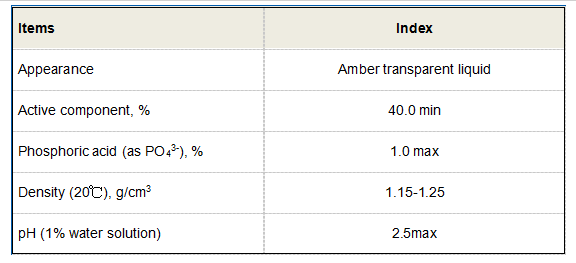Exploring the Applications and Benefits of Isothiazolinones in Various Industries
The Versatile Uses of Isothiazolinones A Closer Look
Isothiazolinones are a class of heterocyclic compounds that have gained significant attention in various industries due to their effective antimicrobial properties. Widely recognized for their ability to prevent the growth of bacteria, fungi, and algae, isothiazolinones have become a staple in numerous applications, ranging from household products to industrial uses. This article will explore the diverse applications of isothiazolinones, highlighting their significance in modern society.
1. Preservatives in Personal Care Products
Isothiazolinones are predominantly used as preservatives in personal care products. Their efficacy in preventing microbial contamination makes them ideal for inclusion in products such as shampoos, conditioners, lotions, and creams. The presence of isothiazolinones in these formulations ensures the longevity of the products, protecting consumers from potential health risks associated with bacterial growth. For instance, methylisothiazolinone (MIT) and chloromethylisothiazolinone (CMIT) are commonly utilized in cosmetics and personal care items to maintain product integrity.
2. Industrial Applications
Beyond personal care products, isothiazolinones are extensively used in industrial applications. They serve as biocides in cooling systems, paper manufacturing, and oilfield applications. In water treatment, isothiazolinones help to control microbial populations in industrial water systems, thereby preventing biofilm formation and reducing maintenance costs. Their ability to inhibit the growth of bacteria and fungi is crucial in extending the lifespan of equipment and systems across various industries.
In the paints and coatings industry, isothiazolinones play a crucial role as preservatives. They are incorporated into water-based paints, varnishes, and coatings to inhibit the growth of microorganisms that can spoil the final product. The ability of isothiazolinones to extend the shelf life of paints contributes to the overall quality and durability of the coatings when applied to surfaces, thus preventing premature degradation caused by microbial activity.
isothiazolinone uses

4. Household Cleaning Products
Household cleaning products are another significant area where isothiazolinones are employed. These compounds are effective in preventing the growth of bacteria and fungi in household cleaners, disinfectants, and surface wipes. By incorporating isothiazolinones into cleaning formulations, manufacturers ensure that their products not only clean surfaces but also maintain a hygienic environment. This is especially important in the context of preventing the spread of infections, particularly in kitchens and bathrooms.
5. Agriculture and Horticulture
In agriculture, isothiazolinones are used as fungicides and bactericides, helping to protect crops from various pathogens that can severely impact yield. By preventing fungal and bacterial infections, these compounds contribute to more sustainable and effective agricultural practices. They are also used in horticulture, where they help in maintaining the health of ornamental plants and flowers, ensuring their aesthetic appeal and viability.
6. Regulatory Considerations
While isothiazolinones offer numerous benefits, their use is not without controversy. Regulatory bodies have raised concerns over potential skin sensitization and allergic reactions associated with certain isothiazolinones, particularly MIT. As a result, manufacturers must navigate stringent regulations that govern the concentration and usage of these compounds in consumer products. Ongoing research is crucial to assess the safety and efficacy of isothiazolinones, ensuring their continued use without compromising public health.
Conclusion
Isothiazolinones stand out as versatile compounds in various sectors, proving invaluable in maintaining product stability and safety. Their applications in personal care products, industrial processes, paints, household cleaners, and agriculture illustrate their integral role in contemporary society. As research continues to evolve, it is essential to balance the benefits of isothiazolinones with safety considerations, paving the way for innovative solutions that harness their antimicrobial properties while safeguarding consumer health. In a world increasingly focused on hygiene and sustainability, isothiazolinones will likely remain a vital component of various formulations that enhance our daily lives.
-
Water Treatment with Flocculant Water TreatmentNewsJun.12,2025
-
Polymaleic AnhydrideNewsJun.12,2025
-
Polyaspartic AcidNewsJun.12,2025
-
Enhance Industrial Processes with IsothiazolinonesNewsJun.12,2025
-
Enhance Industrial Processes with PBTCA SolutionsNewsJun.12,2025
-
Dodecyldimethylbenzylammonium Chloride SolutionsNewsJun.12,2025





